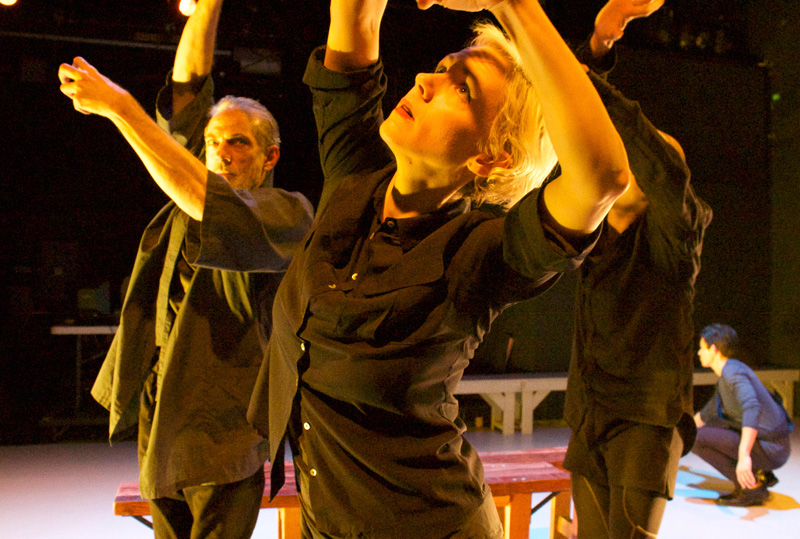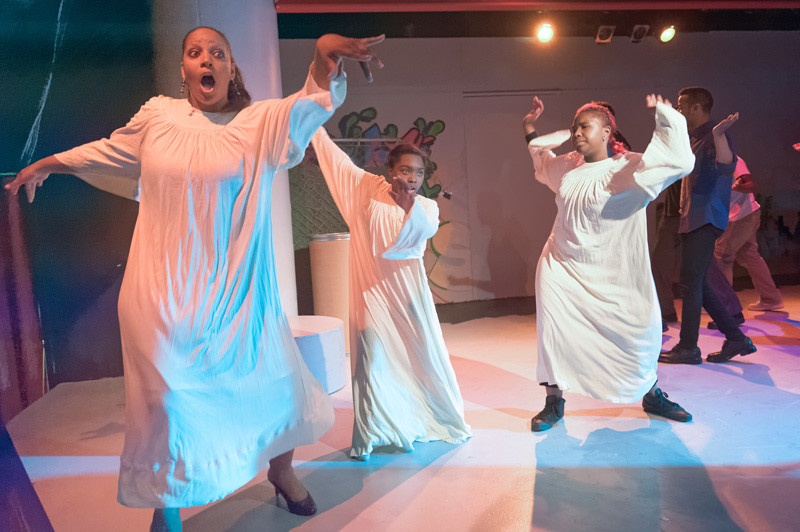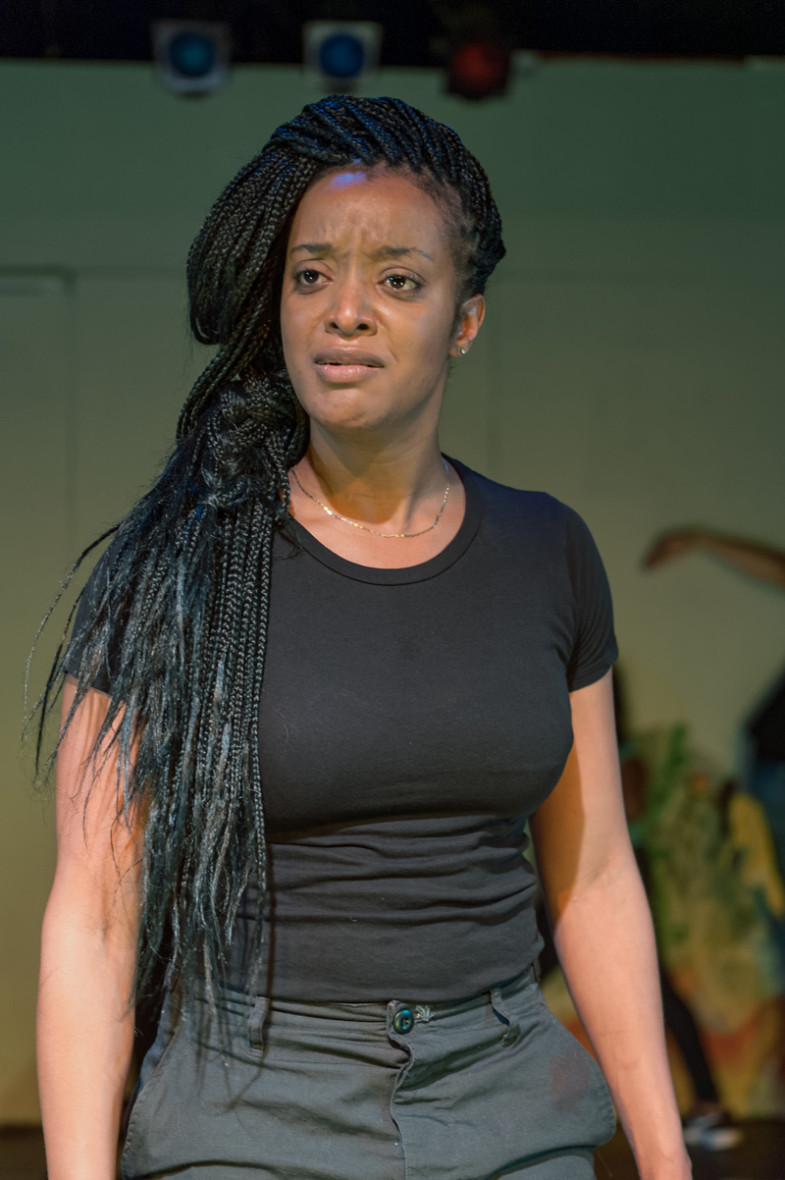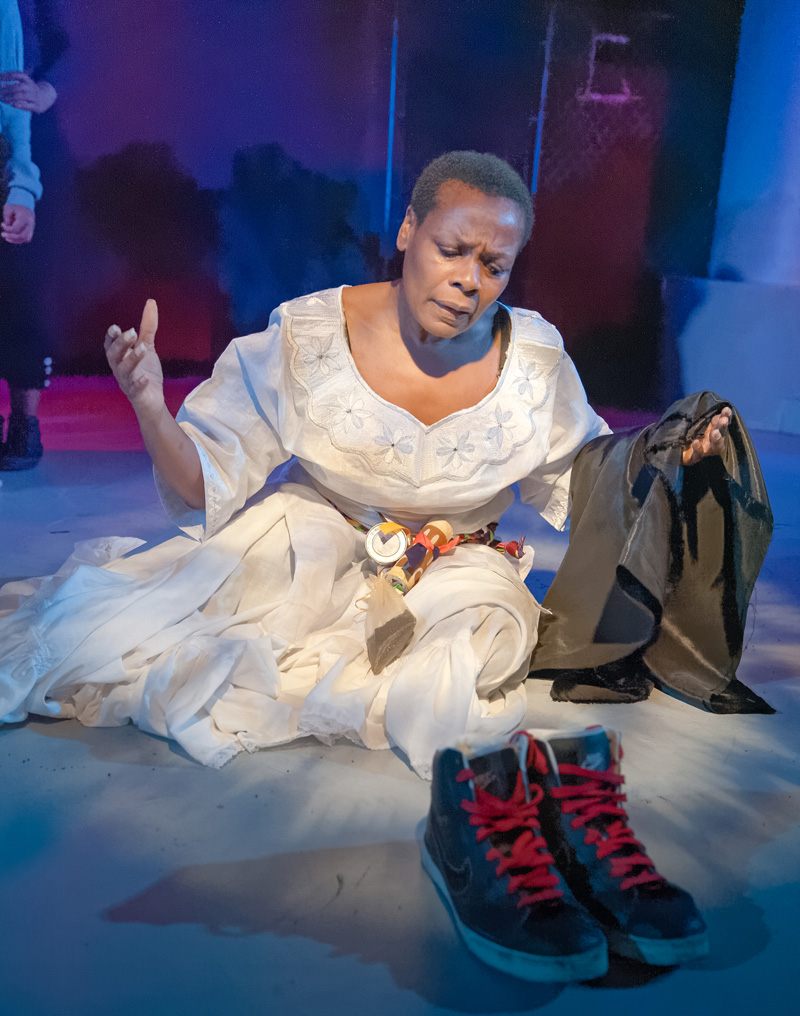Antigone is the tale of a young woman who stands up against an unjust government. Right now, however, she does not stand alone. Two different San Francisco theaters are premiering new adaptations of Sophocles’ tragedy—the Cutting Ball Theater’s Antigone and African-American Shakespeare Company’s Xtigone —and a third joins them in March, at Shotgun Players. This wasn’t a coordinated effort; all three projects had been in the works for years. But the convergence represents a rare opportunity for local audiences to see three different, provocative takes on the same story, and it’s well worth taking advantage of that chance.
Antigone is one of Sophocles’ three surviving Theban plays—the first of them that he wrote and the last in chronological order of the events depicted. The other two are Oedipus the King and Oedipus at Colonus, both about Antigone’s father (who was also, famously, her brother). Written around 441 BCE, Antigone takes place after Oedipus’ death. His two sons, Eteocles and Polyneices, have killed each other in a civil war. Kreon, the new king (brother of Oedipus’ wife/mother, Jocasta), decrees that Eteocles shall be buried with honor as a defender of the city, while Polyneices must be left out to rot as a traitor. Any attempt to bury the body will be a capital offense. Antigone refuses to let her brother suffer such an unnatural fate and buries the body in defiance of her uncle, making herself an enemy of the state.

Interestingly, it’s the company devoted to works of the avant-garde, the Cutting Ball Theater, that has the most traditional take on the material. That’s because Cutting Ball’s Antigone is a new translation, by Daniel Sullivan, rather than an adaptation per se. The language is formal and densely poetic, sometimes deliberately archaic and sometimes modern and slangy for blunt impact or comedic effect, with many delightful turns of phrase.
An intense performance style and dancerly movement make associate artistic director Paige Rogers’ staging of this Antigone feel like a bold interpretation. The piece has been unusually long in the making; the cast and creative team went to Poland last summer for two weeks at the Grotowski Institute, where they worked with members of Teatr Zar on movement and polyphonic singing.
That training shows. The eight actors function as a unit, often speaking or singing in unison and deftly executing synchronized movements, much of it abstract or related to the action of the play in only a vague, intuitive way.

An intimate dance of pushing and batting playfully at each other is repeated several times by close relations who find themselves in conflict. We see this sequence first projected on the floor as we arrive, in Chase Ramsey’s silent video of Eteocles and Polyneices (Daniel Larlham and Anthony Nikolchev, who are not among the live cast) horsing around in happier times. We next see it as sister Ismene (a placid Hannah Donovan) tries to convince Antigone (Madeline H.D. Brown, compellingly stoic and determined) not to defy the king. Then Wiley Naman Strasser’s devoted and tactful Haemon, Kreon’s son and Antigone’s fiancé, does this dance one last time with his stubbornly proud father (a quick-tempered Jason W. Wong). Other bits are harder to fathom, such as the cast pretending to be typing while Elissa Beth Stebbins’ dynamic chorus leader muses on the nature of suffering.




